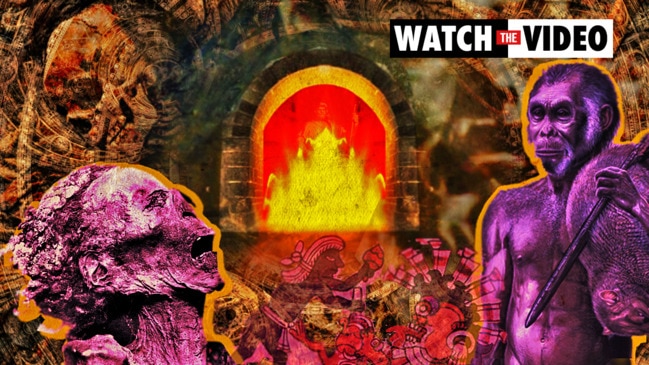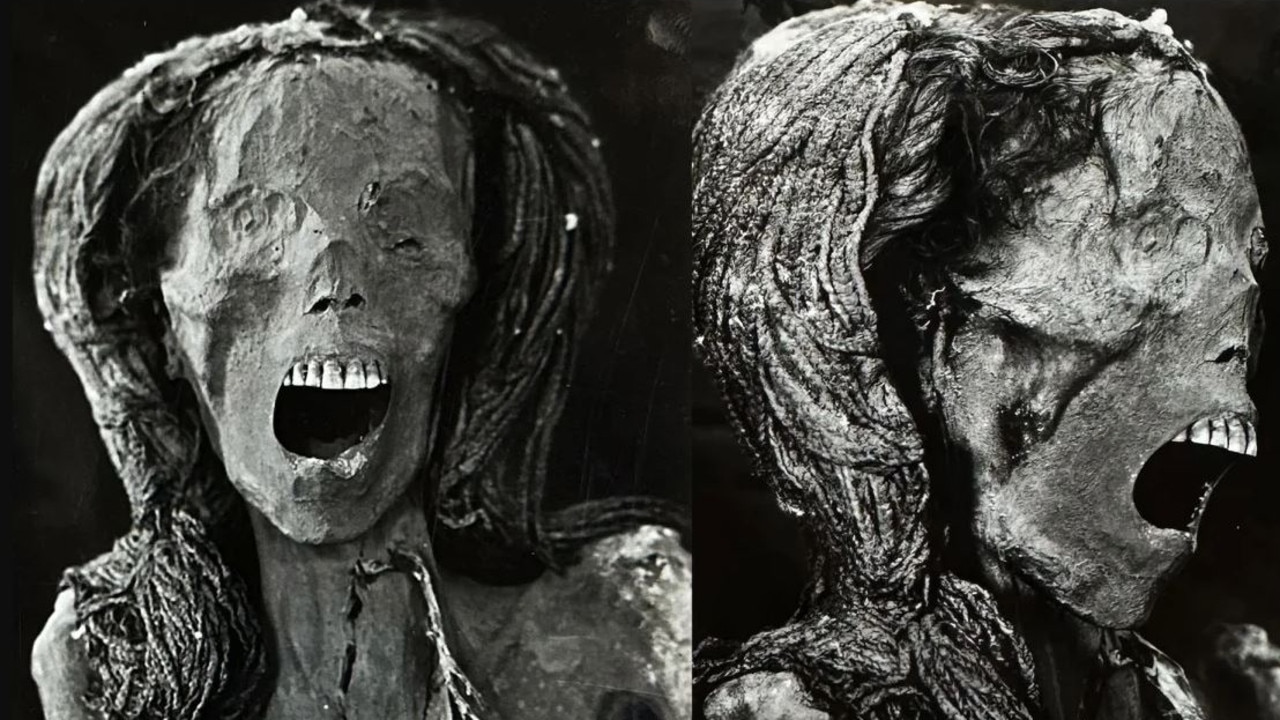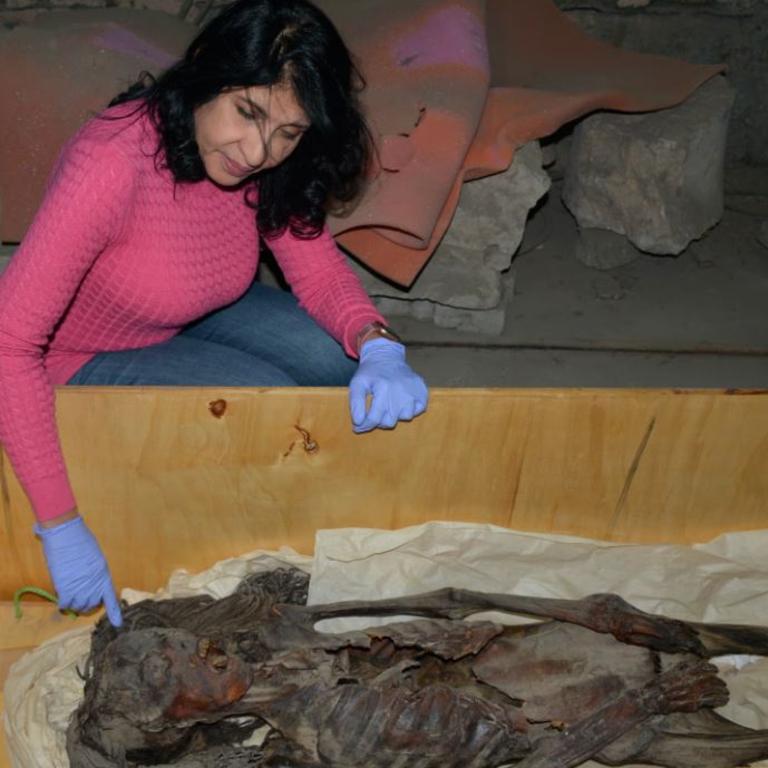Sinister new find about ‘screaming’ ancient Egyptian mummy
Haunting new details have emerged about an ancient Egyptian mummy whose face has been locked in a ‘scream’ for 3500 years.

WARNING: Graphic images
Sinister new details have emerged about an ancient Egyptian mummy whose face has been locked in a ‘scream’ for 3500 years.
The woman is believed to have died when she was 48 years old under unknown circumstances during Queen Hatshepsut’s reign (1479 – 1458BC) in Luxor, Egypt.
Her body was expertly preserved in a tomb of an ancient Egyptian government official and not discovered until centuries later in 1935, during an archaeological expedition led by the Metropolitan Museum of New York.
Though her true name is unknown, she was quickly dubbed the “screaming woman” due to the haunting expression on her face that has captivated archaeologists for decades.

It was originally theorised that the reason behind her jaw being locked into perpetual gaping scream was simply due to a poor mummifying technique — that the embalmer may have been in a rush or simply was not experienced enough and forgot to properly secure her mouth closed before burial.
But now, thanks to modern technology, scientists believe that they may know the real reason behind her anguished scream — but the truth is far more sinister.
It has now been theorised that the woman “died screaming”, according to anthropologist Samia El-Merghani of the Egyptian Ministry of Tourism and Antiquities and radiologist Sahar Saleem of Cairo University.
“Here we show that she was embalmed with costly, imported embalming material,” El-Merghani and Saleem wrote in a recent study published in Frontiers in Medicine.
“The mummy’s screaming facial expression in this study could be read as a cadaveric spasm, implying that the woman died screaming from agony or pain.”

“We suggested that the reason for this opened mouth could be due to a painful death or emotional stress and cadaveric spasm made her face frozen to the appearance at time of death,” Saleem added in a news release.
“Embalmers were unable to close the mouth and mummified the contracted body before it decomposed or relaxed, preserving her open mouth after death.”
Myriad different tests, including a ‘virtual autopsy’, revealed that the woman, her organs and her teeth were remarkably well preserved.
This allowed researchers to determine that she was around 48 years old and 1.54 metres tall at the time of her death. Bone spurs found on the vertebrae indicated she probably suffered from spinal arthritis.

There was also evidence of early practice dentistry in her mouth. Several of her teeth were missing, but there was evidence of bone resorption, a healing process that occurs after teeth fall out or are pulled out.
Some of her remaining teeth were broken or showed signs of decay.
The woman was buried wearing two scarab rings in silver and gold and researchers found the embalming materials included juniper resin and frankincense. These were expensive imported ingredients that may have aided in the body’s preservation.
The investigation revealed juniper and henna on the woman’s hair, while the wig was made from braided date palm fibres and showed traces of juniper and frankincense as well as various minerals.


This was possibly to stiffen the fibres and give them a youthful black colour, Saleem suggested.
A cadaveric spasm is a rare form of muscular stiffening that occurs at the moment of death and persists into the period of rigor mortis. It is rare and some scientists have argued that it does not exist at all.
It happens in cases where death occurs after great and prolonged muscular tension, which is why it is typically associated with “violent deaths under extreme physical conditions and intense emotion.”
While the true how and why surrounding the screaming woman’s death may never be revealed, Saleem said her impeccably preserved body “is a true time capsule of the way that she died and was mummified”.






